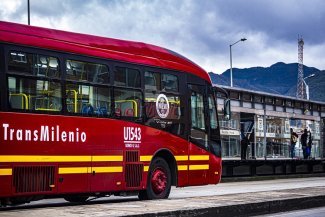As 2019 gets going, it’s a time for many of us to reflect on the year past, consider our current situation and to contemplate resolutions for change in the future. If we were to do this exercise for the state of our communities and reimagine the kind of democracy we live in and the way we experience democracy, what would it look and be like? This was the question researchers at global civil society alliance, CIVICUS, put to thought leaders and activists from nearly 80 countries across the globe in the course of a year-long initiative.
They found that although societies had transformed in many ways, the world’s governance systems appeared to be living in the moment, stymied by a crisis of imagination, short-term thinking and the tactical considerations of those in power. How else can one explain a total global military spending of US$1739 billion when 821 million people are forced go to bed hungry. In country after country, polarising politics and divisive leaders are failing to get a grip on the things that are really impacting people’s lives: the damage wreaked by runaway climate change, searing inequality and mindless conflict.
Worryingly, only four per cent of the world’s population live in countries where there is adequate protection for the freedoms of expression, association and peaceful assembly which enable people to influence the political and social structures around them.
Indeed, radical solutions are needed to make democracy real for people and societies in the 21st century. Clearly, some fundamental shifts are needed. Three in particular might be worth paying attention to.
First, a substantial amount of decision-making needs to be enabled at the local or community level. Too often, governance decisions are taken in far away places without taking into account local needs. Devolving decisions closer to the ground where their impact is felt can make decision-making more accountable. It’s also easier to course-correct when democracy is more deliberative through means such as citizens’ assemblies and community parliaments. However, some inherent safeguards need to be built in to guard against prejudice and the tainting of decision-making by vested interests.
Second, global problems need global solutions, developed through global democracy. At present, decisions on international relations, commerce, migration, climate change and the like are taken in distant intergovernmental institutions often delinked from direct public participation. Many of those affected are unable to have a say in international decision-making that impacts their lives. One solution offered is a world parliament elected directly by people as a possible pathway for publics to claim their rights and advance meaningful change at the international level.
Third, a new vision is needed to address exclusion and inequality through a democratised economy that works for all. The dominant neo-liberal economic discourse premised on deregulated markets and rampant privatisation has led to eye watering inequality. Small groups of privileged elites have ended up controlling economic resources and political decisionmaking in almost all countries of the world. Key elements of an alternative economic vision would involve reorientation of economic policy towards properly functioning tax regimes and redistribution of economic resources. Notably, a key element of this economic vision would be public access to quality non-monetised basic services such as education, health, power, water supply and internet to create equality of opportunity.
Change is afoot
The challenges with present practices of democracy are many, ranging from imperfections in electoral systems to lack of respect for human rights norms by those in power. Yet, even as we lament the rise of right wing populism, changes are afoot in many parts of the world often enabled people’s movements and civil society organisations. In places as diverse as Armenia, South Korea and Gambia, people’s movements have recently sparked democratic breakthroughs, successfully challenging autocratic leaders at the ballot box and in the streets.
In West African countries such as Burkina Faso and Senegal, young people have led movements, mobilising creatively to stand up to autocratic rulers who tried to extend their time in office.
In the US, students have gotten further in questioning the political power of the gun lobby than any organisation had managed to for many years, responding to catastrophe not by accepting comforting platitudes but by taking action. Malaysia’s ruling party was finally defeated earlier this year after more than six decades of entrenched power, with civil society’s campaigning against corruption and electoral abuses pivotal.
The MeToo and Time’s Up movements have mobilised huge numbers of people, changing the debate about the status of women in societies and workplaces around the world. In Ireland, people’s mobilisations have shown how citizen assemblies and referendums can advance rights with a successful campaign to change the abortion law, marking a victory for women’s sexual and reproductive rights.
To progress, we must work harder to make elections fair while building diverse alliances that support independent judiciaries, media and other stakeholders interested in protecting democratic values. Overall, our research found that people still believe that democracy is the best form of governance, even if they are dissatisfied with their current experience of it. It’s a fundamental human aspiration to have voice and influence over the circumstances of our lives. Through meaningful democratic participation, better decisions can be taken, and decision-makers can be made more accountable.









